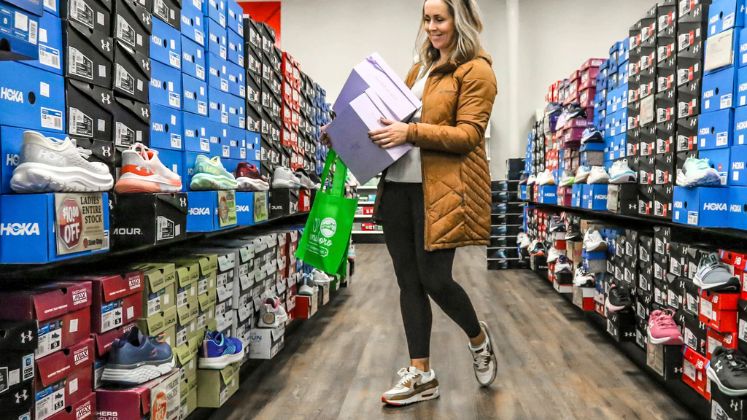With the US tariff rates accelerating in full force, the Footwear Distributors and Retailers of America (FDRA) has issued a warning about the potential economic damage that the United States can suffer as a repercussion of the tariffs being implemented by Donald Trump.
Trump’s proposal regarding the reciprocal tariff policy aims to align the US tariff rates with those of its global trading partners and address non-tariff barriers to US exports. However, the FDRA argues that the historical precedent demonstrates that such tariffs lead to increased consumer costs and significant industry disruptions.
The FDRA cites past examples, including the McKinley Tariff and the Smoot-Hawley Tariff, as well as the 2018 trade conflict initiated by the Trump administration, to illustrate the negative impact of tariffs on consumer prices and economic stability.
FDRA Senior Vice President Andy Polk stated that the consequences of high tariffs are consistent across different time periods, ultimately resulting in increased costs for American families. He highlighted that footwear is already heavily burdened by tariffs, with some children’s shoes facing duty rates exceeding 90 per cent.
The FDRA cautioned that further tariffs would exacerbate financial strain on households, especially amid rising prices for essential goods. Polk urged the administration to adopt a targeted approach to avoid placing unnecessary burdens on consumers and businesses.
FDRA President and CEO Matt Priest called for a nuanced tariff policy, warning against a blanket tax increase that could harm American consumers and businesses. He expressed concern about a potential wave of “shrinkflation,” where consumers pay more for less.
The FDRA also released findings from its first-quarter 2025 ‘Shoe Executive Business Survey,’ revealing a decline in industry confidence. The survey showed that 87 per cent of footwear executives anticipate a weaker economy in the next six months, and 85 per cent expect reduced consumer demand.
Furthermore, 97 per cent of executives predict higher landed costs, with 45 per cent expecting increases between 11-20 per cent. Nearly three-quarters of executives identified governmental intervention, primarily tariffs, as their main business concern.
US Government retail data supports these concerns, showing a nearly 8 per cent drop in shoe store sales in January 2025 compared to the previous year, marking the 21st decline in 23 months.
Priest stated that consumer confidence has significantly weakened, and demand is decreasing. He emphasised that for many families, purchasing an extra pair of shoes is becoming unaffordable.
Meanwhile, the EU has begun consultations on counter tariffs to the US, including those on textiles, following the US’s duties on steel and aluminium imports. The European fashion industry has warned that a trade war could create market instability.







